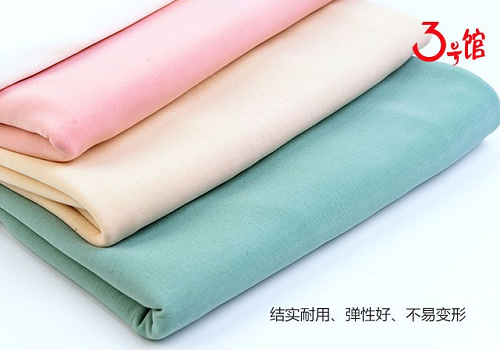Synthetic fiber is a type of material made of polymer compounds. It has many types and uses. The word “Lun” (polyester, nylon, acrylic, spandex, etc.) is the most common. The following will popularize it with everyone. Let’s look at the types of synthetic fibers and their uses.

Polyester (polyester fiber): This is a low-cost and easy-to-obtain material, but it has very excellent performance and a wide range of uses, high strength and wear resistance Good resistance is the main feature of polyester, and its chemical properties are relatively stable. Generally, it will not react with weak acids and alkalis. It can be used in industry and clothing and textile fields. Polyester T-shirts and polo shirts are typical representatives.
Nylon (polyamide fiber); nylon is also commonly known as nylon. Nylon and polyester are rich in resources and often rank first in production among synthetic fibers. It has similar strength and wear resistance to polyester, but The elasticity is much better than polyester, and it can be used to produce some demanding clothing, such as swimsuits, T-shirts and other clothing fabrics.
Acrylic fiber (polyacrylonitrile fiber): Acrylic fiber has a soft feel and is similar to the wool products we usually see. Because wool is relatively scarce and expensive, acrylic fiber can be used as a substitute for wool. Of course, the overall performance is still far behind. Less than wool, acrylic can be blended with other fibers and made into fabrics such as sweaters.
Spandex (polyurethane elastic fiber): Spandex is a synthetic fiber known for its elasticity. It has the characteristics of wear resistance, sweat resistance, acid and alkali resistance, and is generally not woven separately but combined with other fibers (cotton). linen, silk, wool and chemical fiber) blended into cloth. The purpose is to make the fabric more elastic.
Vilon (polyvinyl formal fiber): This is a synthetic fiber that looks and feels similar to cotton. Its hygroscopicity is the best among synthetic fibers. It has excellent Wear-resistant and corrosion-resistant, it can replace cotton to a certain extent and is mainly used in the field of clothing and textiles.
The above-mentioned types are common synthetic fibers and their uses. The () mall also sells the above-mentioned fabrics. Friends who want to buy can go directly to the mall to check the price.





